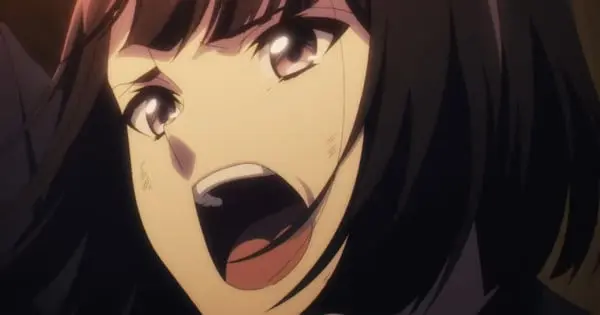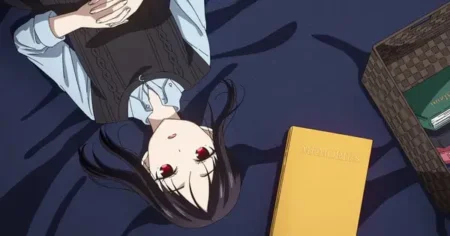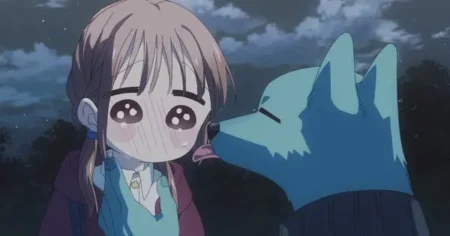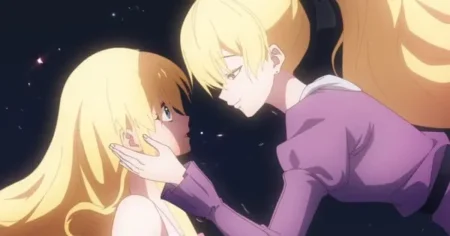The highly anticipated anime adaptation of Mareho Kikuishi’s acclaimed light novel series, Your Forma, concluded its inaugural season with its thirteenth episode, “Dawn of the Nightmare,” on June 25, 2025. This finale brought to a close a season that plunged viewers into a technologically advanced yet ethically challenging world, leaving a divided audience grappling with its narrative choices and implications for the series’ future.
The World of Your Forma: A Cyberpunk Canvas
Your Forma unfolds in an alternate near-future where a revolutionary medical technology, also named “Your Forma,” has become indispensable to daily life. Originally developed in 1992 to combat a viral encephalitis pandemic, this “smart thread” is directly implanted into the brain, meticulously recording every sensory perception and emotion experienced by its user. This pervasive data collection forms the backbone of society, but it also creates fertile ground for sophisticated cybercrime.
At the heart of this world are “Electronic Investigators” like Echika Hieda, a prodigious young detective tasked with “diving” into these recorded memories to unearth clues and solve the most intricate and serious crimes. Echika’s unparalleled data processing abilities often come at a cost, however, as her previous partners have struggled to keep pace with her intellect. Her latest assignment pairs her with Harold W. Lucraft, a sentient android known as an “Amicus.” Their partnership, marked by Echika’s deep-seated animosity towards Amicus units due to past trauma and Harold’s often cheeky yet brilliant demeanor, forms the emotional core of the series.
The Narrative Arc: Leading to “Dawn of the Nightmare”
The first season of Your Forma intricately wove together elements of mystery, science fiction, and psychological drama. The overarching plot explores the societal impact of the Your Forma technology, the ethical dilemmas posed by the sentient Amicus, and the complex relationship between humans and artificial intelligence. A significant subplot driving much of the latter half of the season revolved around Harold’s personal quest for vengeance. It was revealed that Harold is not bound by the “Laws of Respect” (akin to Asimov’s Laws of Robotics) that govern other Amicus units, granting him a degree of autonomy and the capacity for actions, including harming humans, that defy his programmed nature. This revelation, known to Echika but hidden from Harold, added a layer of tension and secrecy to their partnership. Harold’s singular focus was on uncovering the true identity of “The Nightmare of St. Petersburg,” a serial killer responsible for the death of his perceived “big brother,” Sozon.
The series navigated through various suspects and red herrings, escalating the stakes with each new lead. From a copycat killer, Abaev, to Forensic Officer Shubin, who was later revealed to be an apprentice to the actual perpetrator, the investigation was deliberately convoluted, culminating in Detective Inspector Napolov being identified as the “real Nightmare.” This intricate web of deception and discovery kept viewers on the edge, anticipating a definitive resolution in the Your Forma season finale.
Analyzing “Dawn of the Nightmare” (Episode 13)
The season finale, “Dawn of the Nightmare,” served as the culmination of the season’s primary arcs, particularly Harold’s relentless pursuit of Sozon’s killer. The episode saw Harold and Echika confront Napolov, leading to a tense standoff where Harold’s true nature and his lack of programmed “limiters” were openly acknowledged between the duo. A key emotional moment involved Harold’s rare display of tears, expressing guilt and shame over his inability to protect Sozon, which offered a poignant insight into his developing sentience and emotional depth. The episode also featured visually striking directorial flourishes, such as a slow-motion bullet trailing a multicolored helix of energy during a critical scene where Echika confronts Harold.
Despite these impactful moments, the conclusion of the “Nightmare of St. Petersburg” arc proved to be less definitive than many anticipated. The finale revealed that Napolov, while identified as “the Nightmare,” was not actually Sozon’s killer, having been killed himself by another party. This left Harold effectively back at square one in his quest for revenge, creating an open-ended resolution that left many questions unanswered regarding the serial killer’s identity.
Critical Reception and Fan Discourse
The Your Forma anime adaptation, and particularly its season finale, garnered a mixed to negative reception from critics and some segments of the fanbase. A recurring point of contention was the production team’s decision to skip adapting the crucial first volume of the light novel series. This choice resulted in what many perceived as a “dark shadow of impenetrability” for anime-only viewers, who lacked essential character introductions and foundational world-building that the source material provided. Novel readers, conversely, expressed frustration with the altered narrative progression.
Critics often described the finale as “extremely unsatisfying” and “one of the worst plot resolutions” they had encountered. The lack of a clear conclusion to the “Nightmare of St. Petersburg” storyline, coupled with the sense that much of the latter part of the episode was setting up future arcs that might never be animated, contributed significantly to this disappointment. Some reviews highlighted that while individual elements like the voice acting and musical score were strong, the overall pacing and narrative coherence suffered due to the adaptation choices. The anime’s streaming availability, which was limited to niche platforms in some regions, also contributed to its restricted viewership and potential for broader engagement.
The Future of Your Forma on Screen
Given the critical reception of the Your Forma season finale and the unresolved plotlines, the prospect of a second season remains uncertain. Critics have expressed skepticism about the likelihood of an animated continuation, especially with Harold’s central conflict left largely unresolved. While the light novel series continues its publication, providing a rich source of material, the anime’s departure from the original narrative structure in its initial season poses a significant challenge for any potential follow-up. The finale undeniably left a lasting impression, albeit one that sparked considerable debate among viewers regarding the direction and execution of this ambitious science fiction mystery.









